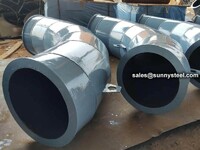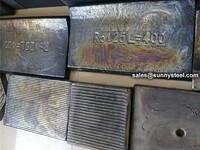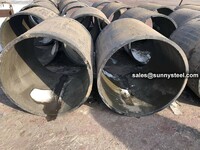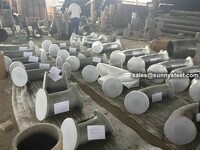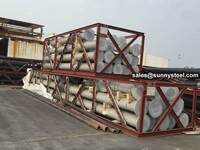Orifice Flanges
Product Quick Detail
- Place Of Origin
- China
- Minimum Order
- 1
- Packaging
- in wooden boxes
- Delivery
- 15 Days
Specifications

Orifice flanges are used instead of the standard pipe flanges when orifice plate or flow nozzle is used. The basic purpose for this is to measuring the flow rate of either gases or liquids in the respective pipeline. These flanges are used in various industrial applications and are available in various sizes and materials.
Standards, Dimensions & Weight
- 300# Slip-On Orifice Flange
- 300# Weld Neck Orifice Flange
- 600# Weld Neck Orifice (raised face and RTJ ring type joint) Flange
- 900# Weld Neck Orifice (raised face and RTJ ring type joint) Flange
- 1500# Weld Neck Orifice (raised face and RTJ ring type joint) Flange
- 2500# Weld Neck Orifice (raised face and RTJ ring type joint) Flange
Orifice flange draws :
- Orifice Flange
- Size: 1/2” to 60”, DN 12mm to DN 1500mm view...
- Pressure class: Class 150 to Class 2,500, PN 2.5 to PN 250
- Facing: RF / RTJ
Cabon steel: A105, A350 LF2
Stainless steel: A182 F304/F304L/F316/F316L/F321
Alloy steel: F11, F12
Packing: plywood case and plywood pallet
Usage:
Flanges are integral parts of many engineering and plumbing projects. In many applications, engineers need to find a way to close off a chamber or cylinder in a very secure fashion, usually because the substance inside must differ from the substance outside in composition or pressure.
They do this by fastening two pieces of metal or other material together with a circle of bolts on a lip. This “lip” is a flange.
Plumbing
You can connect two sections of metal piping by soldering or welding them together, but pipes connected in this way are very susceptible to bursting at high pressures. A way of connecting two sections of pipe more securely is by having flanged ends that you can connect with bolts. This way, even if gases or liquids build up to high pressures inside the pipe, it will often hold with no problem.
Mechanics
In order to connect two sections of a large, enclosed area, it is often best to used flanges and bolts. An example of this is the connection between the engine and the transmission in an automobile. In this case, both the engine and the transmission contain a number of moving parts that can easily get damaged if they get dust or other small objects inside of them. By connecting the outer casings of the engine and transmission in this way, engineers protect the inner workings of both.
Electronics
Flanges have a specific purpose in cameras and other electronic devices. Though flanges in such items do not usually have to sustain high pressures, they do have to hold tight so they can keep out harmful particles. These flanges are usually found connecting two different materials, such as the glass of a lens and the rest of the body of the camera.
We have a team of experienced professionals with years of experience in manufacturing.
- Country: China (Mainland)
- Business Type: Manufacturer
- Market: Americas,Asia,Europe,European Union
- Founded Year: 20000
- Address: No. 273, Siping Road, Shanghai
- Contact: sum xu


